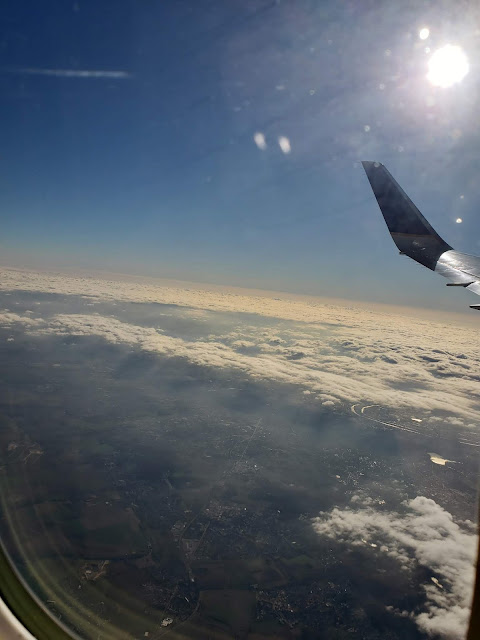Pushing Pause on the Boeing 737 Panic.
Two Boeing 737 Max's have crashed in the last month or so, the most recent in Ethiopia where it resulted in tragic loss of life.
We still, of course, don't know what occurred. There's anecdotal evidence, but only that, that there may be a problem with some of the automated features. Or not.
It's important to acknowledge that we still don't know and there's a lot of things that could be occurring here, and one of them could be a couple of things that are being missed in the press or that people simply don't want to address.
I touched on one of those yesterday, politics. Politics inform our views in all sorts of ways of course, and they can creep in here whether we mean for them to or not. And by politics the politics of there being really only two companies on earth left that make large commercial aircraft, Boeing and Airbus. The Europeans were quick to shut down the flights of the 737 Max to the extent that flights in the air had to turn around, which is flat out absurd. A knowledgeable person later told me that a European aviation commenter claimed that part of the problem with the 737 Max is that Boeing is too close to the FAA, which is ironic in my view as I wonder if the hearts of the Europeans aren't a bit too close to Airbus.
Another issue was raised by President Donald Trump.
Are they too complicated to fly? Well, a person can debate that. The real debate, however, is not if they are too complicated, really, but too automated. And that's a different thing entirely.
Modern aircarft are by and large the safest they've ever been, and part of that is due to technology. Technological advances have made modern commercial aircraft far more safe than any aircraft in prior eras, it's a simple fact. Risks that passengers accepted in prior eras routinely would never be accepted now.
For example, the Fokker Tri Motor, which was a legendary early passenger airplane that's still widely regarded, was at first built with all wooden frame. It was the snapping of the wooden wings of such a Fokker that resulted in the death of Knut Rockney and his fellow travelers in 1931.
Fokker F-10. It had an all wooden frame.
Now, if you've flown, you've seen those wings flex. Would you feel safe in a wooden framed passenger plane?
I could go on and on about various older aircraft that were widely used that we'd be horrified to be in today, but the point is clear. Airplanes are safer than ever, and technology is part of the reason for that.
But with that technology has come the inevitable computer override, to some degree of, pilot decisions. A lot is now going on in all kids of aircraft due to computerization. And computers fail or make errors.
The irony here is that the Airbus is more computer controlled than the 737 Max, I'm told. Indeed, it flat out overrides pilot commands in some instances. The Boeing 737 Max was designed so that the pilot can control over the computer. The Airbus is more like a modern AirTrain. It feels free to basically tell the pilot, "no sir, I don't think so".
There could indeed be a problem with that, in all sorts of ways, at some point. If there is, we should really pause as we're about to take that same path with automobiles. Indeed, we already are.
And the drivers of cars are a lot less technologically adept as a rule than pilots are. Indeed, as noted earlier American pilots are much more adept in every fashion than those of other nations, and perhaps that plays into this as well.
At any rate, no answers right now. Hopefully no financial disaster for Boeing as well, which wouldn't serve the interest of the travelling public.













